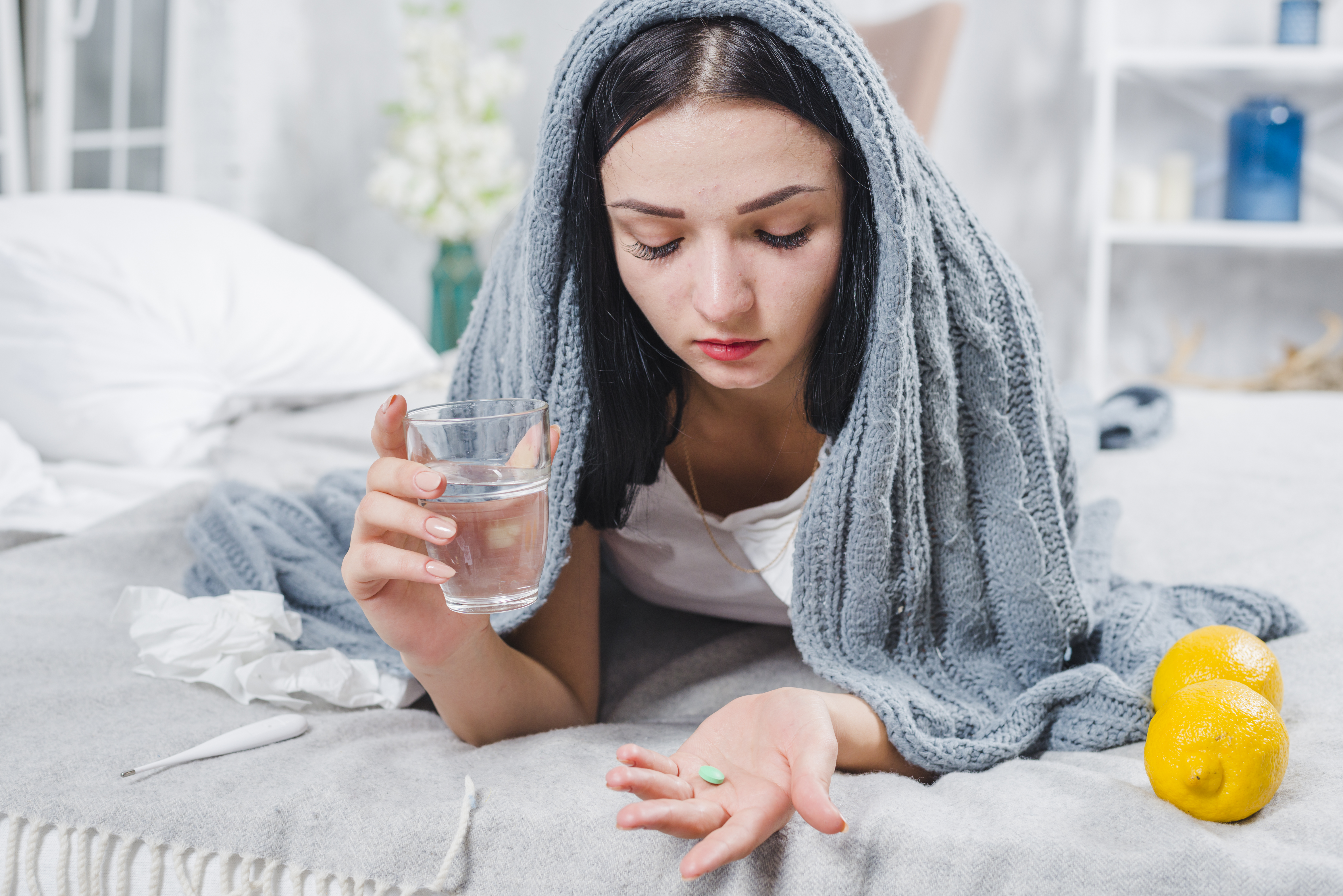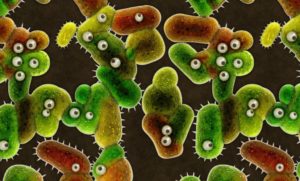Almost everyone has been prescribed antibiotics at some point in their lives. Sometimes it is necessary to take them because antibiotics, besides reducing serious complications of illness, are used to fight against bacterial infections. But what do you do after the antibiotic treatment?
First of all, what does antibiotics do?
In short, antibiotics attack the bacteria. They kill the bacteria or inhibit their growth, reducing and eliminating the source of infection. However, when we talk about bacteria, we also mean all the bacteria, the bad and the good bacteria population that resides in your gut, also known as your microbiome. These 2 kilo (!) bacteria are a complex mix of healthy and less healthy bacteria that work hard to maintain a healthy balance.
And this balance, unfortunately, is no longer as balanced after a course of antibiotics.
So while that bacterial infection has hopefully been successfully treated, there is an urgent need to rebuild your gut flora and rebalance your microbiome.
Why is a healthy gut flora so important?
The balance of good and bad bacteria in the gut is the key to a healthy life because your gut is connected to your:
- immune system: almost 70 percent of the immune system is regulated from your intestines.
- Weight and metabolism: the presence or absence of certain bacteria is related to your weight, both underweight and overweight/obese.
- Digestion: the digestive tract depends on different types of food passing through the intestines and ensuring absorption of nutrients.
- mood: gut bacteria produce and respond to neurotransmitters such as GABA, serotonin, norepinephrine, dopamine, acetylcholine and melatonin, which the brain also uses to regulate mood and cognition. A happy mood or depression is therefore directed from your belly, they do not say for nothing that your belly is the brain of your body!
Maintaining or restoring (when you've had medication like a course of antibiotics) a proper balance of good and bad bacteria is therefore vital to keep your body and mind functioning properly. We have collected a few tips for you to maintain and restore a healthy gut flora.
8 tips to maintain or restore good intestinal flora
1) Take antibiotics only when absolutely necessary
It seems obvious, but antibiotics are still regularly prescribed or requested by patients when there is no real need. Especially with respiratory tract infections or a bad flu, it still happens that people take a course of antibiotics when it turns out to be a virus. Antibiotics do not work against viruses, only against bacterial infections.
If you'd rather not go straight to regular antibiotics, consider natural supplements or aromatherapy. Many plant-based supplements and essential oils have strong antibacterial properties, such as teatree and oregano. Natural remedies allow your body to repair itself, without the side effects of regular medication.
Additionally, now that you know that the balance of your gut flora is so important to overall health, it's only smart to be critical of whether or not you start a course of antibiotics. Consult with your health care provider and then decide if a course of antibiotics is really necessary, or if you can wait and see and tap into your body's own restorative powers. Because really, that restorative capacity is more effective than you think, especially if you take the following tips into account!
Rebuilding the intestinal flora after antibiotics
2) Take a probiotic supplement
Even if you eat as healthy as you like, a course of antibiotics will not give your intestines their best and it is advisable to take a probiotic supplement to bring your intestinal flora back into balance.
Some common types of probiotics that are good for your gut health are:
- Lactobacillus acidophilus: the best known probiotic and one of the most important for small intestinal health. Acidophilus inhibits pathogens and produces natural antibiotics such as lactocidin and acidophilin, which improve immunity.
- Bifidobacteria bifidum: prevents the entry of pathogenic bacteria and yeast. In addition, this species increases the absorption of iron, calcium, magnesium and zinc.
- Streptococcus thermophilus: used to make yogurt. When lactose is broken down to make lactase, the enzyme that digests milk sugars, this strain can help with lactose intolerance. Other Streptococcus strains: Cremoris, faecium and infantis.
- Enterococcus faecium: this has been shown to be useful against diarrhoea, making you suffer from it for a shorter time. It kills pathogenic microbes, such as rotavirus. Studies have shown that this strain also lowers LDL or bad cholesterol. This organism is highly resistant to antibiotics.
Probiotic supplements can also be taken during your antibiotic treatment. It will not weaken the effect of the antibiotic treatment, on the contrary it will help the good bacteria to beat the bad ones. It is best to take the probiotics in the evening, a few hours after your last antibiotic pill. This will allow your intestines to work on their recovery during the night. Be sure to take these probiotics for at least a month.
If you're not sure which probiotic supplement is best for you, consult an expert or buy it at a health food store. Some pharmacies also sell probiotic supplements. Did you know that in some countries probiotic supplements are automatically prescribed by the doctor when taking antibiotics?
If you have intestinal problems and they persist for a long time, even after the probiotic treatment, it is advisable to have a stool test done. This way you know exactly which bacterial strains are present in excess or deficiency to ensure a healthy balance.
3) Avoid foods that damage the intestinal wall
 Your gut thrives best on naturally fresh foods. So avoid processed and refined foods because they contain chemicals and therefore are not well absorbed by your intestines or, at worst, are downright bad for your health. So eat as much unprocessed fresh food as possible, not from packets or pouches. And if you can, eat what the season gives us. The vegetables that are in season just growing in our country often contain just those nutrients our bodies need in that season. And if your wallet allows, preferably buy organic food, these are at least pesticide free.
Your gut thrives best on naturally fresh foods. So avoid processed and refined foods because they contain chemicals and therefore are not well absorbed by your intestines or, at worst, are downright bad for your health. So eat as much unprocessed fresh food as possible, not from packets or pouches. And if you can, eat what the season gives us. The vegetables that are in season just growing in our country often contain just those nutrients our bodies need in that season. And if your wallet allows, preferably buy organic food, these are at least pesticide free.
The type of food that attacks your intestines can also be very personal. With the "What can I eat" food tests you can quickly map this out.
4) Eat fiber
There are two types of foods that help promote healthy gut flora; the first is fiber.
Good gut health is associated with intake of adequate fiber and micronutrients, found in foods such as whole grain cereals (oatmeal, buckwheat, amaranth, millet and quinoa), fresh vegetables and fruits (spinach, kale, broccoli, cauliflower, Brussels sprouts, cabbage, pears, raspberries, strawberries) and legumes (lentils, split peas, brown beans), as well as flaxseeds, seaweed and nuts are packed with fiber.
Fiber is a source of carbohydrates found in unprocessed plant foods. So if you eat enough of these fibres with each meal, you will be satiated for longer, which in turn has a positive effect on your blood sugar levels. It's a win-win-win situation!
However, if you have a food allergy or food intolerance, you should adjust your fibre intake accordingly.
5) Eat fermented foods
The second type of food that promotes good gut health is fermented foods. These are foods that are naturally high in probiotics. Probiotics are live bacteria and yeasts but they are the 'good' microorganisms. Probiotics restore the balance of good and bad bacteria, allowing your health and immune system to function properly.
Foods containing probiotics include buttermilk, kombucha, miso, tempeh, kefir, kimchi, sauerkraut and pickles. The most well-known food product containing probiotics is yoghurt. So after a course of antibiotics, it's good to have a bowl of yogurt (with some oatmeal, flaxseed, nuts and strawberries for your fiber, for example).
Further strengthening of your resistance
Besides restoring your intestinal flora, you also want to work on a stronger resistance: your immune system.
6) Eatno sugars
An important dissuade: be careful with addedsugars, especially after a course of antibiotics! Sugar is the favourite food of bad bacteria. Especially when your intestines are recovering from a course of antibiotics, you don't want bad bacteria to get the upper hand again. So only get your sugars fromhealthy products like fruit and dairy, but be careful with added sugars, including aspartame and fructose-sugars. And while you're at it, avoid alcohol for a while.
7) Detoxification
If you did need a course of antibiotics, you can then take care of getting rid of the toxins that chemical drugs bring.
You can naturally bind toxins to food and ensure that they are removed, for example:
- the binding of toxins to proteins by the substance glucosinolates. This is found in various types of cabbage such as broccoli cauliflower and Brussels sprouts and mustard.
- Excretion of toxins through liver cleansing: nettle or dandelion tea, milk thistle or grapefruit essential oil.
- To support the elimination through the kidneys you can drink a glass of lukewarm (filtered) water with (organic) lemon juice in the morning.
You can also choose to take supplements that support detoxification.
8) Build up your resistance
If you have recovered a bit, then besides healthy food getting back into movement is a very good way for your overall recovery. But build it up slowly and listen to your body: your condition has deteriorated because of illness or infection.
- Go outside for a half hour walk (don't go running right away).
- Stimulate your resistance by not turning up the heating too high in your home: rather put on a sweater and warm socks.
- Take alternate showers.
- Try to get at least 7 hours of sleep and go to bed on time.
- Consider extra vitamin C: this gives your resistance a strong boost that you can use now. Especially with the R in the month, extra vitamin C is a good supplement.
We hope that with these tips, you'll be healthy again soon!
How can Bloodtesting.nl help?
Regular blood tests are crucial to understanding how your health works. This allows you to track your progress; detect any diseases, infections and inflammation in a timely manner and then work in a targeted manner to resolve any issues.
If you suffer from your intestines, it makes sense to give them a good screening. After all, your health starts with your gut
Start with the test:gut health screening , so you immediately get a broad picture of what's going on.
If something should come out of this that needs to be treated, we have very good experiences with the intestinal therapist Dr. Ir. Julia Schantl.
You can book a consultation with her via Bloodtesting.nl for only €30,-.
If you have received a course of antibiotics from your doctor, then that is certainly necessary. But after that it's not the GP's speciality to tackle the cause from within the intestinal flora or to advise on how to restore the intestinal flora after a course of antibiotics or chronic illness.






Michelle
at May 10, 2021Michelle
at May 10, 2021J. Holt
at May 28, 2021Elise F.
on28 Sep 2023Bogaert
at10 Mar 2024